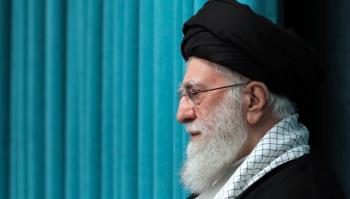Alwaght- As NATO forces withdraw from Afghanistan, Al-Qaeda will have more opportunity to get strengthened. Nevertheless, given the fragile security situation in Tajikistan, the extremist movements, especially Al-Qaeda and ISIS are likely to penetrate into the country. The most important reasons for such a conclusion are as follows:
- Tajikistan's 1,400-kilometer-long border with Afghanistan, is one of greatest source of increasing threat, as terrorists and extremist groups can easily make entry into the soil of this country.
- Over the past few years, Tajikistan has failed to provide its 7.5 million population with acceptable social services.
- The level of corruption in Tajikistan has ever been growing, and this can raise social discontent and people's tendency towards the Islamist revisionist currents.
- Government operations against extremist groups in the eastern Tajikistan have not been successful enough, and the Islamic Movement of Uzbekistan together with some branches of the Taliban pose a serious security threat to Dushanbe.
- Tajikistan is prone to the influence of extremist groups trained in Afghanistan and Pakistan, as they are very likely to enter Tajikistan in the future and fuel instability in the country.
- The government's inability to respond to the growing needs and demands of the younger generation will increase radical tendencies among the youth.
- Drug trafficking from Afghanistan to Tajikistan is severely threatening the socio-economic security of the country.
- Tajikistan suffers poor economic conditions which could spark off social and political unrest against the government.
- Given the ethnocentrism in Tajikistan, the country is ruled in a totalitarian political system; therefore, the political system is prone to various social and political conflicts.
Generally, considering the above points, Tajikistan could be appealing to al-Qaeda and ISIS; as there are ethnic and religious splits that make ground for development of al-Qaeda and ISIS ideology. Undoubtedly, if Tajik government does not take appropriate measures to promote moderate traditional Islam, radical tendencies will grow more rapidly in the country.
Considering the growth of Islamic tendencies in Tajikistan, in the long run, if the government does not refrain from controlling the extremists and do not cooperate with the moderate Islamic political organizations, it is going to more than ever pave the way for emergence of extremist movements such as al-Qaeda and ISIS. In fact, if the government of Tajikistan fails to include moderate Islamists in the power structure, so that it can avoid conflict with an important part of national identity of Tajik people that will boost the spread of religious fundamentalism and extremist groups such as al-Qaeda and ISIS. However, for the time being, to penetrate into Tajikistan is high on the agenda of al-Qaeda and ISIS terrorist groups.
If the necessary reforms are not adopted in the political structure of Tajikistan, al-Qaeda and ISIS will begin to develop in the country. Undoubtedly, this will have severe consequences for the Central Asia and neighboring counties.
In fact, the presence of al-Qaeda and ISIS in Tajikistan means that such extremist groups will be bordering with other Central Asian countries that would facilitate their infiltration into Turkmenistan, Uzbekistan, Kazakhstan and Kyrgyzstan. Besides, the presence of al-Qaeda and ISIS in Tajikistan provides them with a greater opportunity to influence the security of the Central Russia, especially in Urals region and the Muslim republics.
Meanwhile, the geographic expansion of al-Qaeda and ISIS can create a wave of insecurity and instability in the area affecting the foreign policy of countries such as Iran, China, and Turkey.
Last but not least, the presence of al-Qaeda and ISIS in Tajikistan could provide an excuse for the US to expand its military presence in Central Asia on the pretext of fighting terrorism through cooperation with the countries of the region.


























